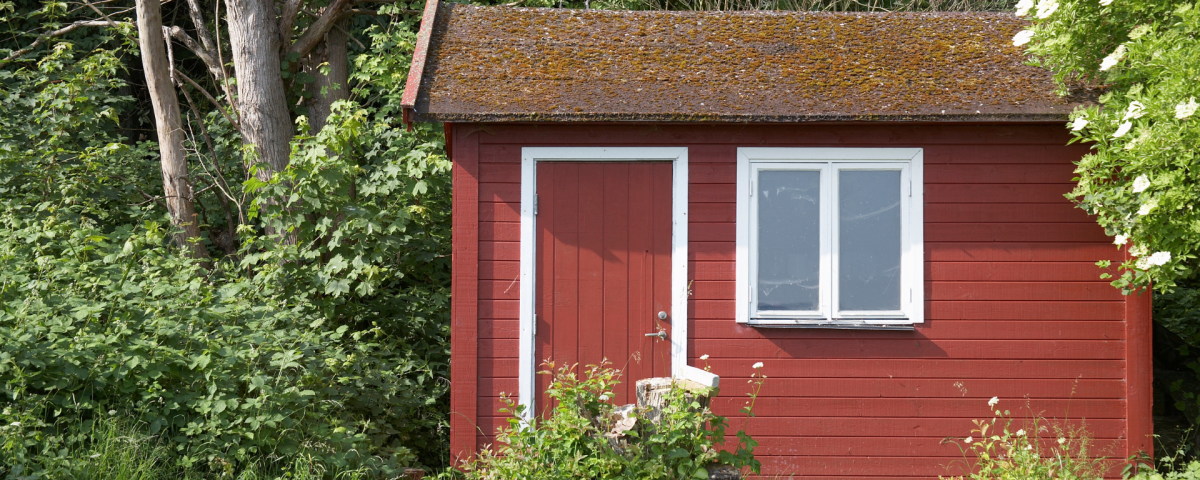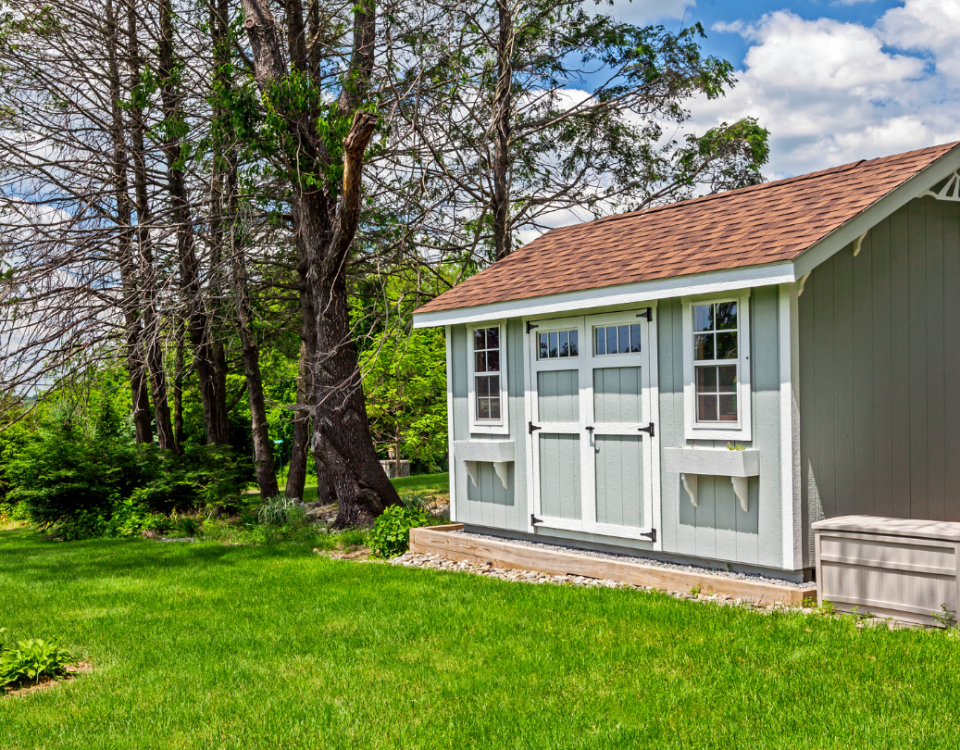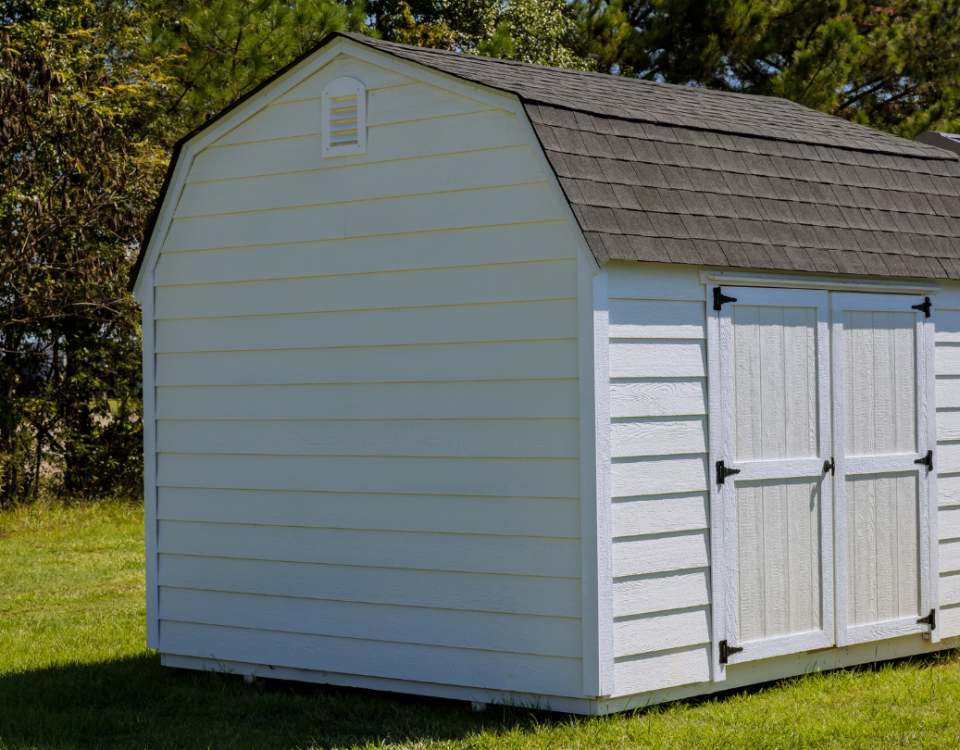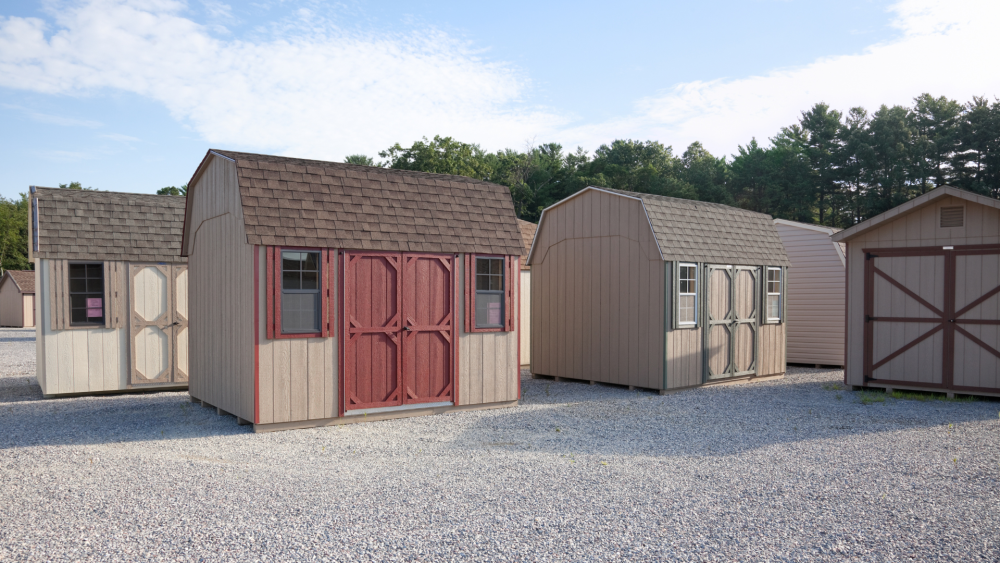
5 Things You Should Consider In A Wood Shed Storage
October 18, 2022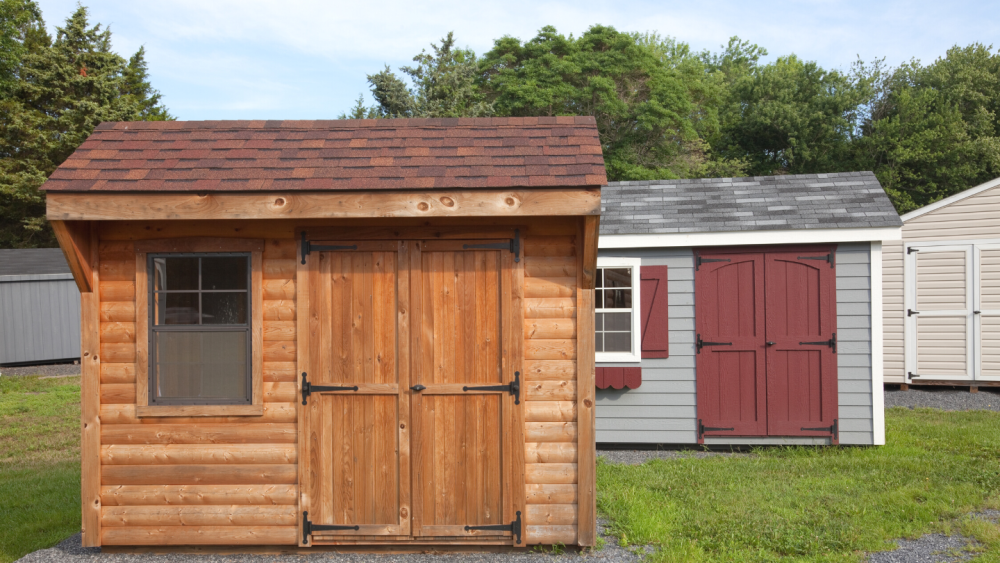
Why Building A Shed Is A Good Investment
March 23, 2023Key Takeaways:
Paint:
Extreme temperatures can ruin paint, leading to leaks or unusable contents if stored in an uninsulated shed.
Canned Foods:
Temperature fluctuations can cause cans to weaken, leading to potential food spoilage or container bursts.
Electronics:
Heat can damage electronics, and moisture exposure can lead to contamination, so avoid storing them in sheds.
Storage sheds are fantastic additions to any property. It instantly provides added storage space should you decide to use it as a storage building. You can even transform it into the ultimate outdoor space where you can practice yoga, turn it into an art studio, the perfect home gym, an Irish pub of your dreams, or anything else. And yet, there are things you probably shouldn’t leave in the shed. Keep in mind that this is for your standard, with no insulation, electricity, or thrills storage shed.
If you decide to add the insulation, power, and other add-on features, this isn’t a list you need to worry about reviewing! But if you intend to use your shed for storage, you may have yet to consider what not to store in a storage shed. Here are a few specifics you need to avoid.
Storing Paint
This is one of the most common mistakes people with sheds make. They take their half-used paint cans and set them into the shed for storage. It makes sense as they are more likely to spill and cause a mess in the garage or elsewhere in the house. However, if you have a storage shed without insulation, leaving paint in a space that will experience extreme heat can lead to severe problems.
Paint will become unstable when left to these kinds of extreme temperatures (check the label on the can of paint as it will likely state not to leave it in extremely high or low temperatures).
At best, the paint won’t be usable, in which case you might as well dispose of the paint properly. At worst, the paint can leak, or the fumes can cause other serious issues. So, only leave your half-used paint cans inside if you have an insulated storage shed.
Canned Foods
Some people like to use their sheds as a place to maintain food reserves. Preppers often have all kinds of food items stored away just in case things turn sour in a hurry. There’s nothing wrong with preparing for various possible scenarios, and it offers peace of mind to know you have a viable option in case something terrible happens. Still, a storage shed is not the answer.
Cans of food are non-perishable, but they need to be kept in a place that is out of extreme temperature changes. Putting these cans of food in cooler areas, such as a basement, is best. Instead, if placed in a shed, the constant temperature changes will affect the food inside the can. For starters, this will cause the food to expand and contract. As this happens, the metal will weaken under stress, which can lead to bursting cans of food (the same can happen with jars of food as well).
Even if the cans and jars don’t explode on you, it will weaken the seal on the container, leading to the food expiring. It defeats the purpose of having food storage when all of the food has gone bad when it’s time to use it.
So, while it is always a good idea to have excess food storage in times of need, use something other than the storage shed to store cans of food.
Any Electronics
Heat and electronics do not mix. Ever. If you have any electronic device, you need to store it out of the way, be sure to put it anywhere other than your storage shed. Try taking it to a pawn shop, donating it, selling it on Facebook Marketplace, or putting it for sale in a garage sale! There are many ways you can get rid of your electronic devices but keep them from the storage shed.
Eventually, the electronics will begin to fail, which in turn will render the equipment useless. When that happens, it will be impossible to sell, and then you’ll be stuck with a piece of junk.
Furthermore, you should do more than toss a piece of electronics into the trash. When mixed with moisture, the circuitry can leak and contaminate the local water supply. Instead, it would be best to take it to an electronics recycling center to ensure it is properly disposed of.
Either way, if you have spare electronics, you don’t want in the house, put the electronics anywhere else other than your storage shed.
Fabrics
Whether it is a blanket or a piece of furniture, you don’t want to store fabrics in a storage shed for any length of time. You can probably get away with putting the material into the shed for a few weeks in a pinch, but other than that, you’ll want to avoid it. In a storage shed, the temperature swings can cause problems with the furniture (especially if it is a fabric material that relies on moisture, such as leather).
Additionally, if the shed is on the older side, or if it is one of those one-size-fits-all sheds you buy from a big box home improvement store, the shed won’t be completely airtight, which means insects and mice will potentially chew into the fabric.
Construct The Ultimate Storage Shed Today
Whether your plans for a new utility shed are to add a new outdoor space to your property or you genuinely want to use it for storage, you need a shed that will fit your specific needs. You’ll find something that checks off only some of your boxes if you go to the big box store or order a generic storage shed online. To get what you want, you need to partner with a service provider that can review your requirements and design a shed that addresses everything you are looking for. At Barnyard Utility Buildings, that is exactly what you receive. So, if you are ready to get the ball rolling on the design and build of a new shed, you have questions you’d like answered first, or you want to know more about the company, feel free to contact the team at Barnyard Utility Buildings today. Whatever your storage needs are, Barnyard Utility Buildings is here to help.


